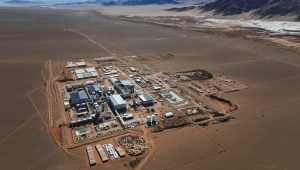A Norwegian mining company has announced that the phosphate rock deposit discovered in June could meet the global demand for solar panels and batteries for the next 100 years.
Norge Mining, an Anglo-Norwegian company, announced the discovery of massive deposits of ultra-rich phosphate rock, vanadium and titanium in south-west Norway this June. The company has said that the deposit is estimated to be worth at least 70 billion tonnes. This is very close to the proven global reserves of phosphate, which are estimated to be 71 billion tonnes, according to a US Geological Survey report released in 2022.
Phosphate rock contains high concentrates of phosphorus, which is a key component for building green technologies. The countries that are using this component are already facing significant supply issues. A bulk of mined phosphate rock is used for the production of phosphorus for the fertiliser industry, besides making solar panels, lithium batteries, semiconductors and computer chips due to the mineral’s higher energy density, enhanced safety and longer life span.
Phosphorus was first discovered in 1669 by German scientist Hennig Brandt. As of now, Russia controls the world’s largest phosphate rock deposits. China, Iraq and Syria are also home to large phosphorus deposits.
A spokesperson for the European Commission described the discovery as “great news” for meeting the objectives of the Commission’s raw material objectives.















